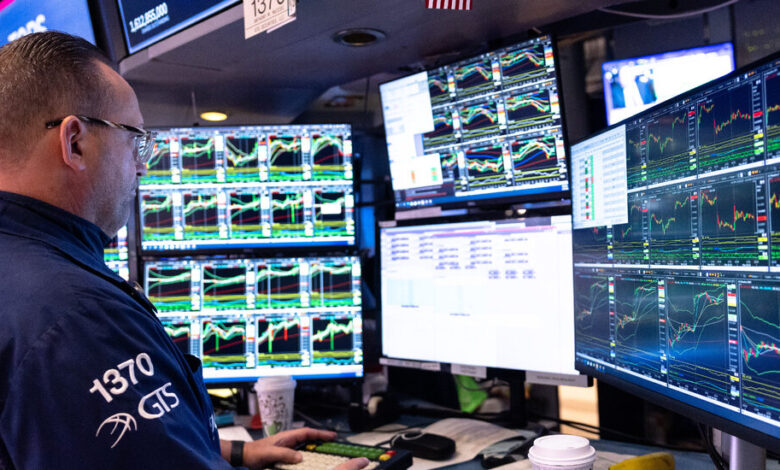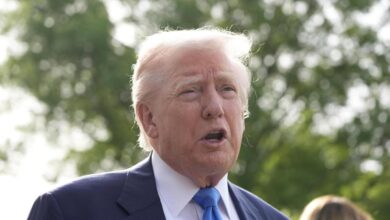Auto Stocks Tumble After Trump’s Tariffs Announcement

Global automaker stocks experienced volatility on Thursday following President Trump’s announcement of a 25 percent tariff on imported cars and certain parts set to take effect next week.
Detroit carmakers, especially those with operations in Canada and Mexico, saw their stocks decline. General Motors, heavily reliant on cars and trucks imported from Mexico, saw a more than 7 percent drop in its stock price. Ford, with less dependence on imports, experienced a smaller decrease.
The S&P 500 index opened 0.4 percent lower after Wednesday’s 1 percent loss. However, Tesla, producing all its vehicles in the US, saw a 1 percent increase as it is expected to be less impacted by tariffs compared to its competitors.
President Trump’s decision also affected automakers in Germany, Japan, and South Korea, with companies like Volkswagen, Toyota, and Hyundai experiencing stock declines. The global market slump led to a drop in benchmark stock indexes in exporting countries like Germany, South Korea, and Japan.
Nearly half of all vehicles sold in the US are imported, along with about 60 percent of vehicle parts. This reliance on imports poses a significant challenge for foreign carmakers, particularly German companies that export billions of dollars in car parts to the US.
The impact of trade conflicts on the automotive industry prompted BMW to forecast a $1 billion loss this year. The uncertainty surrounding tariffs led to a decrease in auto stocks, affecting major stock indexes worldwide.
The announcement also caused a shift in other markets, with gold prices rising as investors sought a safe haven amid trade tensions. U.S. Treasury yields increased as traders considered the inflationary effects of the tariffs.
Financial analysts believe that the economic repercussions of the tariffs may lead to a scaling back of the policy. However, the administration’s aggressive trade stance, including tariffs on Chinese and North American imports, has created uncertainty among investors.
The potential for a recession has been raised by the administration, emphasizing the long-term benefits of their trade policies. Investors remain cautious as they navigate the market implications of these decisions.
The impact of the tariffs on the auto industry and global markets underscores the interconnected nature of the global economy. The uncertainty surrounding trade policies highlights the need for companies to adapt to changing market conditions.
As the situation evolves, investors and businesses will need to monitor developments closely and adjust their strategies accordingly to navigate the shifting landscape of international trade.





